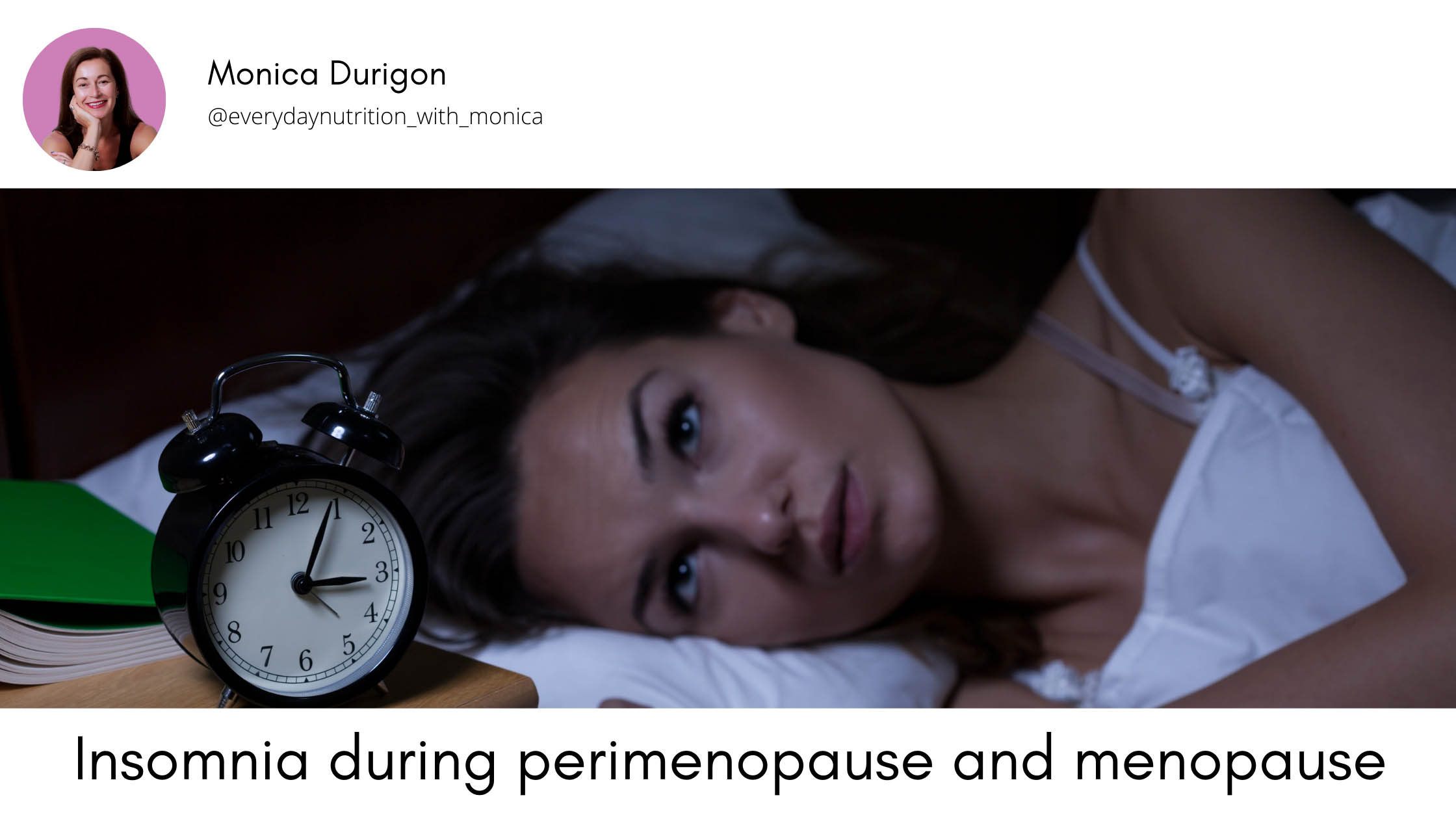Alongside hot flashes, insomnia is one of the most aggravating symptoms women experience during perimenopause and menopause.
Whilst in the past, you might have purposely reduced the amount of sleep you had because you wanted to tick off your long to-do list and compensated by relying on caffeine during the following day, in your 40s and beyond, this lack of sleep is no longer a choice for many women but instead becomes an unwanted and constant presence in their life.
Indeed many of my clients complain of insomnia, difficulty getting to sleep or difficulty staying asleep, having very light sleep interrupted many times independently from the presence of night sweats.
Personally, in my forties, I also struggled for years with debilitating insomnia. Still, I am happy to say that, apart from the occasional night, I finally have cracked the code for a restful night’s sleep, and today I am sharing with you some of the techniques that have helped both myself and my clients.

The costs of not sleeping well
Not many women understand how intrinsically connected their body shape and health are with their sleep quality. Therefore, I want to make sure that you are aware of the consequences that not having good quality sleep and the right amount of sleep can have on your health and your weight because
Poor sleep reduces our metabolic rate by as much as 10%, meaning we are less able to burn food for energy extraction. And sleep deprivation also increases cravings for sugary, carb-laden foods and the secretion of the hunger hormone ghrelin. More ghrelin means an increase in appetite by as much as 30%, which translates into 300 to 500 more calories consumed during days following a bad sleep night.
The increase in carbs intake goes hand in hand with the rise in insulin secretion, which stimulates fat deposition and, in the long term, leads to insulin resistance, making it practically impossible for the body to tap into its own fat storage to produce energy. Hence, if you are a woman over 40, and you find it difficult to lose weight even if you think you are doing all the right things, you might not tackle the real cause of your weight gain.
Unfortunately, the consequences of poor quality sleep are not stopping at weight gain and insulin resistance. Still, many studies have shown the impacts of inadequate sleep, linking it to cardiovascular disease, mood disorders and poor immune function. Furthermore, after a bad night, we feel even more tired and irritable, and our productivity and decision-making ability both take a plunge.
What has helped many of my clients and me
If you are also suffering from sleep problems, I invite you to try the strategies below. These evening rituals have been tested and have been proven to be beneficial by many of my clients and me. I recommend that you start by choosing only two from the list below and slowly build up an evening practice that best suits your circumstances.

1 – Follow a regular schedule and include natural sunlight as part of your daily routine. Going to sleep and waking at the same time each day creates a rhythm for your body. Start the day by exposing yourself to natural sunlight firth thing in the morning, as this positively influences the chemicals which regulate sleep cycles. Since I started my early morning routine of going for a wall whilst at sunrise, I found that this has had an enormously positive influence on the quality of my sleep.

2 – Have a hot bath 90 minutes before bedtime. Add magnesium bath salts and a few drops of any of the following essential oils:
- Lavender – helps relax the body and reduce feelings of uneasiness, stress, and anxiety.
- Roman Chamomile – reduces anxiety and boost moods.
- Clary Sage – reduces inflammation and has a calming effect.
- Ylang Ylang – (my favourite) improves moods and help put the body into a more relaxed state.
Having a hot bath 90 minutes before your usual bedtime lowers your core body temperature, which is, together with darkness, one of the strongest signals to your biology that it is time to release melatonin and prepare your body for sleep.

3 – Limit blue light in the evening and do not keep a television in your bedroom. Research shows that artificial, bright light can disrupt brain activity and alter sleep hormones like melatonin. Your bedroom should be a quiet, peaceful, dark haven used only for sleep and intimacy. Avoid computers, smartphones, tablets, and television for one hour before bed. If you really cannot avoid using screens at night, I strongly recommend that you invest in blue light blocking glasses that can help you maintain more balanced circadian rhythms.

4 – Fill your paper, empty your mind. If you find it difficult to switch off at night because you are over-stimulated by thoughts of what you haven’t completed during the day or tasks you want to remember to do the day after … do not let them linger in your mind… make sure to write them down on paper before you go to bed. Keep a notebook on your bedside table to use as a dumping ground. Everyone knows that having too much on your mind can hinder sleep.

5 – Be grateful. After the dumping exercise, replenish your mind with gratitude for what the day has brought you. Gratitude is the mother of all positive emotions and, when practised at bedtime, gives you a chance to reconnect with positive and calming feelings.

6 – Do some light stretching or yoga before bed. This relaxes your mind and body. Studies show that yoga can improve sleep significantly. You can add 10 minutes of meditation to your yoga routine for an even deeper and more relaxing practice.
My next blog will be about the supplements and herbal therapies that my clients and I have found beneficial in supporting a great night’s sleep.
In the meantime, I would like to hear about your experience. If you are also affected by insomnia, please share what you have tried so far to improve this problem which could be one of the missing pieces when solving the puzzle of your weightloss and, indeed, tiredness.
I am looking forward to connecting with you through the FB community “Weightloss, great energy and more focus!”; a free resource for 40+ busy, professional women who want to thrive during perimenopause and menopause to fully enjoy their professional and private lives without any limits imposed by hormonal symptoms and lack of energy.
If you are not a member yet, make sure to join us by CLICKING HERE






0 Comments